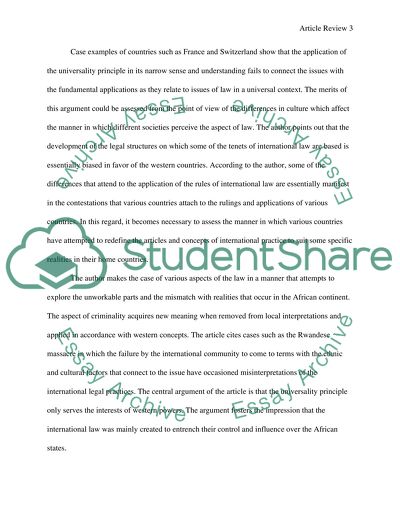Cite this document
(“The article review of 'Universal Jurisdiction, Universal Prescription Literature”, n.d.)
The article review of 'Universal Jurisdiction, Universal Prescription Literature. Retrieved from https://studentshare.org/law/1469053-the-article-review-of-universal-jurisdiction
The article review of 'Universal Jurisdiction, Universal Prescription Literature. Retrieved from https://studentshare.org/law/1469053-the-article-review-of-universal-jurisdiction
(The Article Review of 'Universal Jurisdiction, Universal Prescription Literature)
The Article Review of 'Universal Jurisdiction, Universal Prescription Literature. https://studentshare.org/law/1469053-the-article-review-of-universal-jurisdiction.
The Article Review of 'Universal Jurisdiction, Universal Prescription Literature. https://studentshare.org/law/1469053-the-article-review-of-universal-jurisdiction.
“The Article Review of 'Universal Jurisdiction, Universal Prescription Literature”, n.d. https://studentshare.org/law/1469053-the-article-review-of-universal-jurisdiction.


